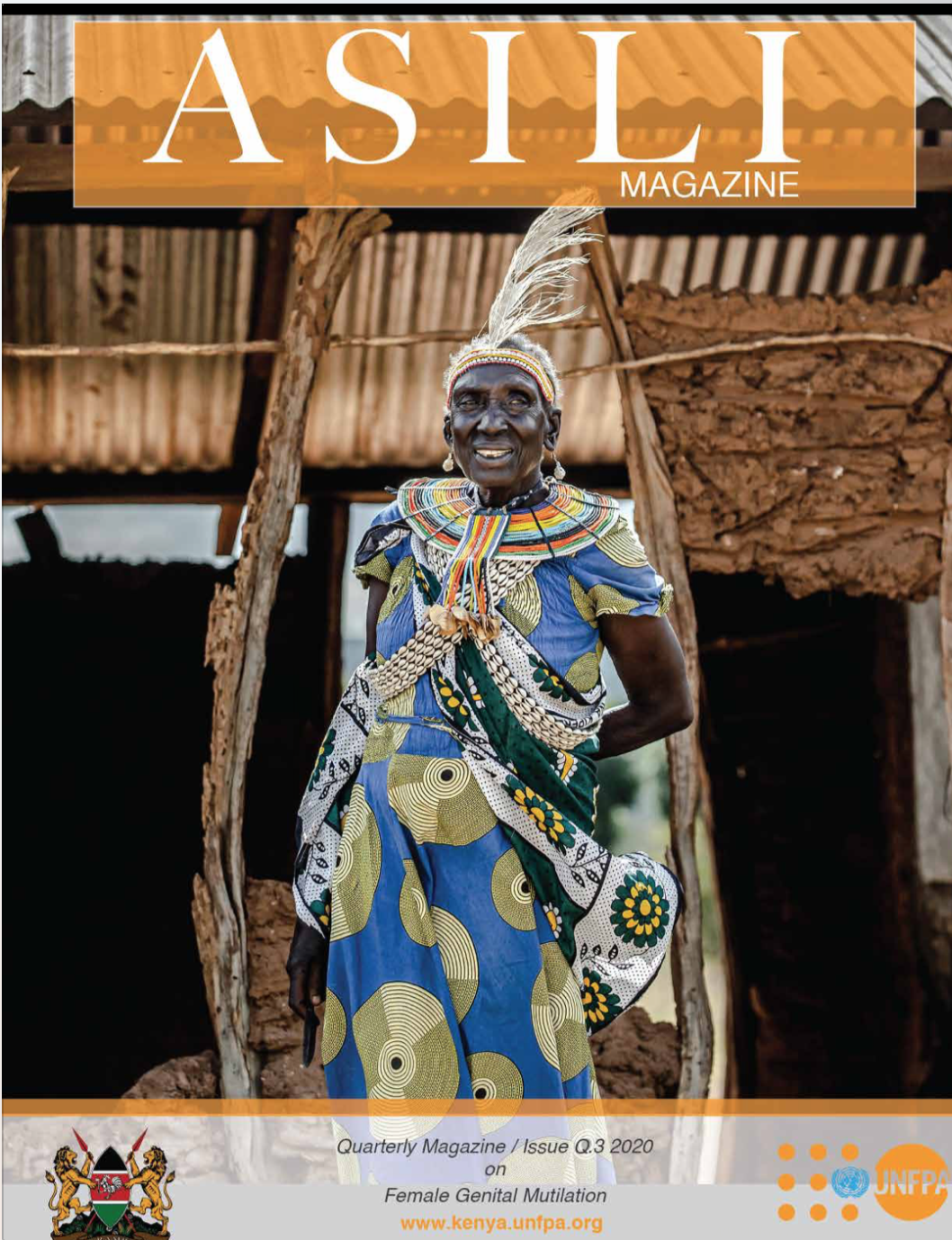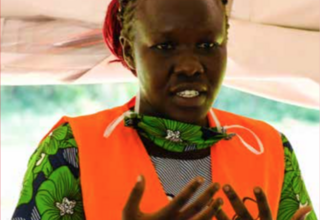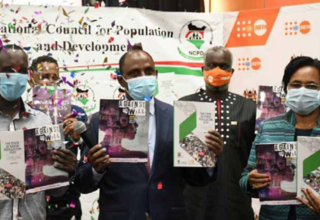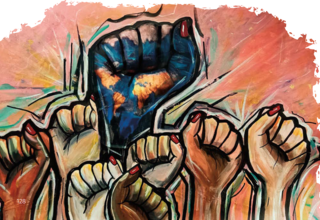A staggering 200 million women and girls, mostly in Africa, Asia and the Middle East, bear the gruesome physical and emotional scars of Female Genital Mu- tilation – an outdated and unspeakably horrendous practice, whose prevalence in Kenya presently stands at 21 per cent. Beyond the statistics, a single case of FGM is torturous enough to sear the human con- science to its core!
Yet, like many other forms of discrimination and vio- lence meted out against women and girls, FGM re- mains widely accepted and normalized in close to 50% of Kenyan communities, spread across 22 out of the 47 counties. Data reveals shocking and unimag- inable proportions of women and girls who have un- dergone the practice in some communities like the So- mali (94%), Samburu (86%), Kisii (84%) and Maasai at (78%), according to the KDHS 2014 report.
This year, UNFPA partnered with World Vision to work closely with community based organizations in strengthenig the anti-FGM movement at the grass- root level. These are organizations working with the youth, male champions, survivors of FGM, artists in the creative industry, as well as duty bearers such as teachers, healthcare workers, and other accountabil- ity partners to build strong surveillance and response systems towards ending FGM. We share some of their stories in this edition of the newsletter.
No explanation, religious, cultural, social or biological, can claim legitimacy for subjecting women’s bodies to the dismemberment associated with FGM. It is a cal- lous and repugnant attack on their human rights, the autonomy of their bodies, and sanctity of their lives. Justification of the practice as necessary for contain- ment of women’s sexuality is base and void. Sexual vitality is resident in the mind, not the clitoris.
Women and girls who have undergone FGM face life- long health afflictions, and the increased risk of pre- ventable mortality. Cesarean sections, hemorrhages, long stays in hospital, death during childbirth, neonatal resuscitation and episiotomy are some of the health conditions and challenges prominently attributed to the mutilation. Bouts of depression and withdrawal symptoms post victimization have equally been un- derscored as psychosocial effects of the practice.
FGM is more than a health and social issue. The World
Health Organization (WHO) estimates that health
care for women living with conditions caused by FGM
amounts to USD 1.4 billion annually. It also estimates that 130,000 years of life is lost for 15-year-old girls undergoing FGM. Translated into working hours, the economic burden occasioned by the practice could ex- ceed the cost of the Second World War to the global economy.
Covid-19 has converged an interplay of factors that promote perpetration of FGM while slowing down the momentum hitherto attained in mitigation and response measures. Closure of schools and rescue centres de- prived girls of the protective institutional environment that kept cutters at bay. Deepening household indi- gence as a result of the impact of Covid-19 on incomes has heightened the persuasion to circumcise girls as a rite of passage that paves way for marriage eligibility to earn bride price for the family. Community surveillance and response mechanisms have faced unprecedented impediments during Covid-19 as a result of lockdowns and curfew restrictions. This also affected the capac- ity of duty bearers to monitor and enforce sanctions against the practice that has morphed into secrecy, in- cluding being packaged as religious events. Uptake of health services by survivors has declined visibly during the pandemic period due to fear of Covid-19 infection. The partial closure of courts has given the impression that perpetrators can go scot free, not being held ac- countable for the heinous act.
While on his State visit to Kenya, the immediate former President of the US, Barrack Obama, decried FGM and child marriage as archaic and untenable traditions. “There’s no reason that young girls should suffer gen- ital mutilation. There’s no place in civilized society for the early or forced marriage of children. These tradi- tions may date back centuries; they have no place in the 21st century,” he asserted.
We must race to achieve an FGM free nation. Auda- ciously, President Uhuru Kenyatta, speaking during the Women Deliver Conference in Canada and the Inter- national Conference on Population and Development Nairobi Summit last year set 2022 as the year when this atrocity against women and girls must come to an end! UNFPA continues to work with the government, civil society, and other organizations from the grass- root to the highest level to ensure that this becomes Kenya’s new reality.




